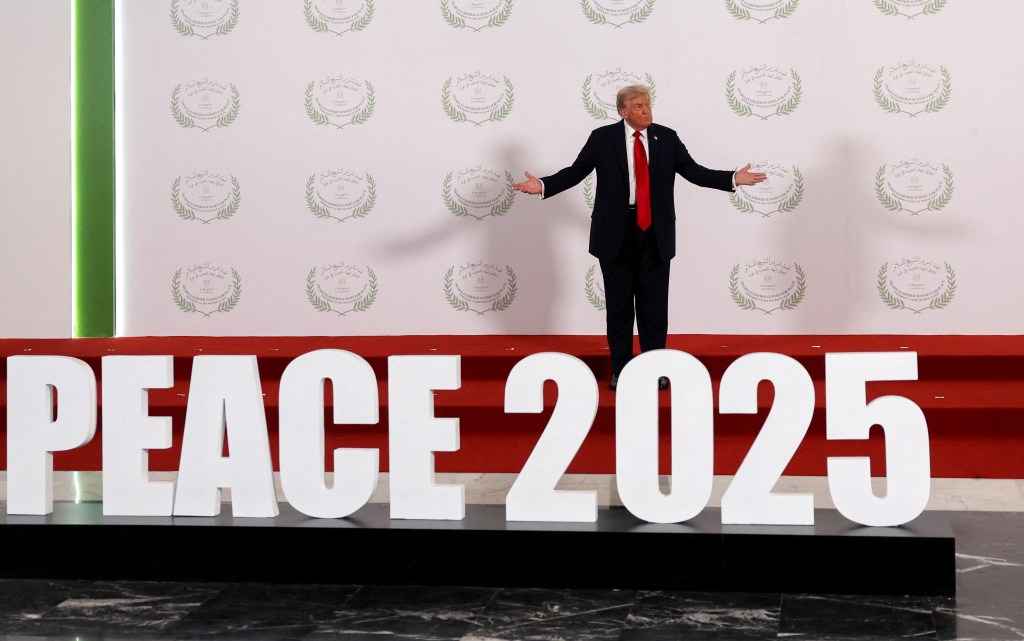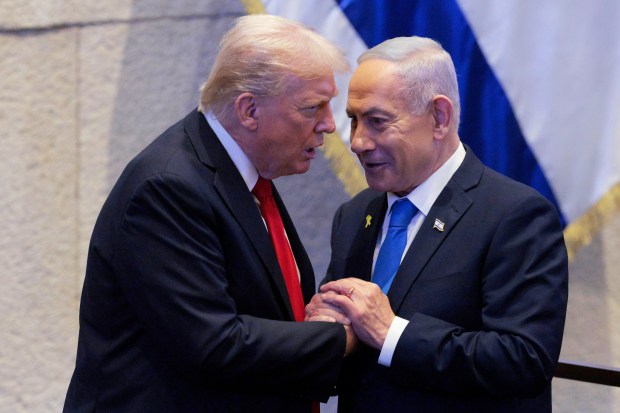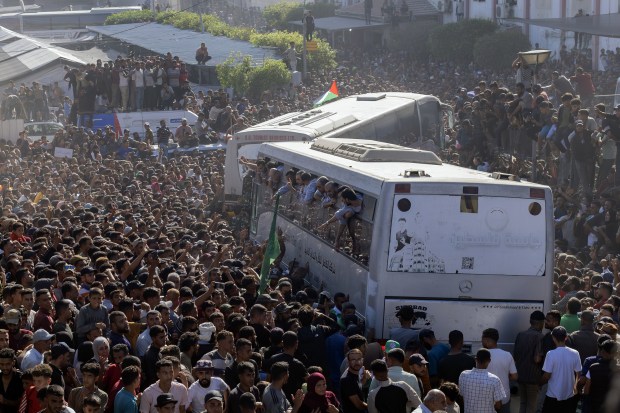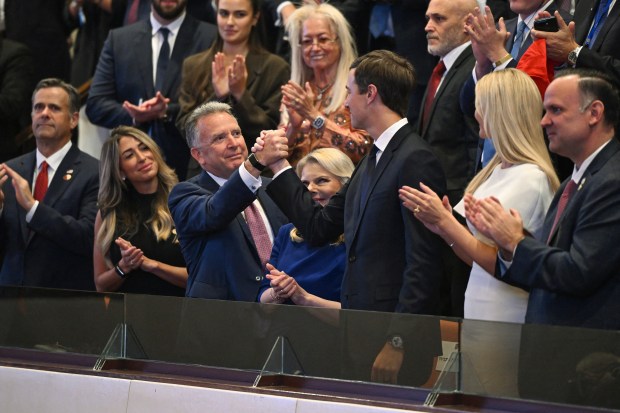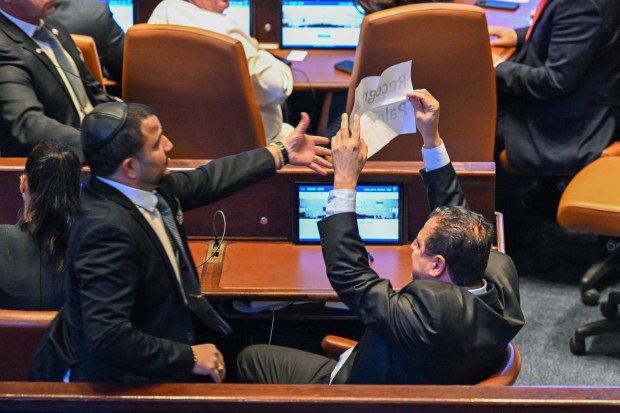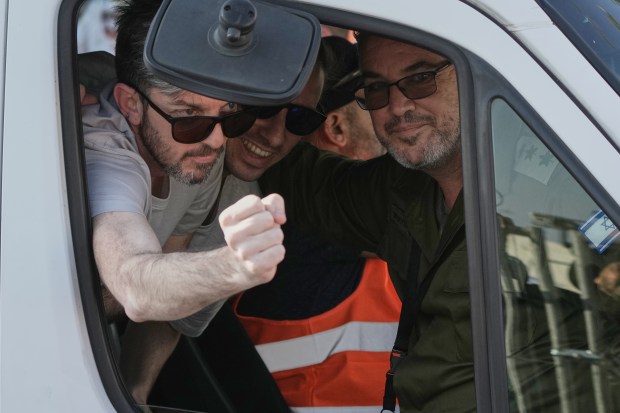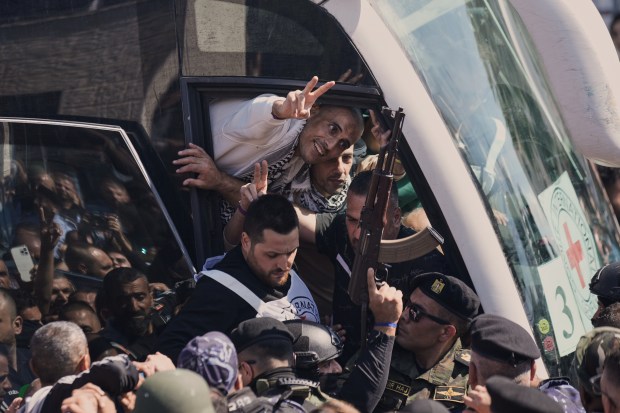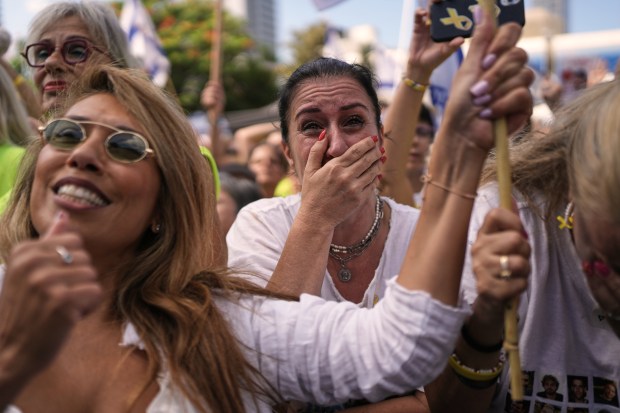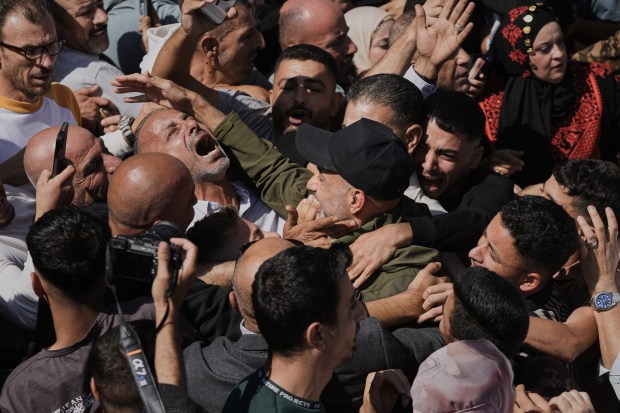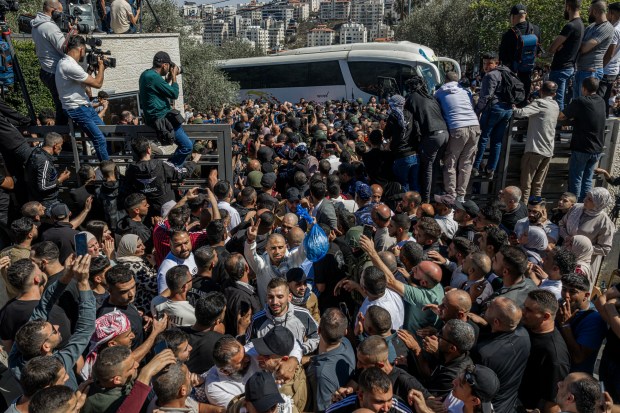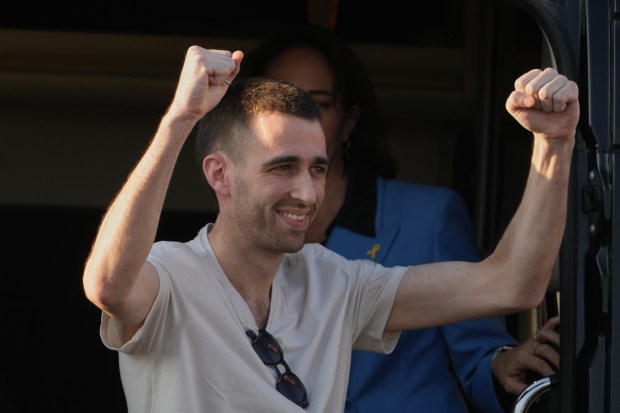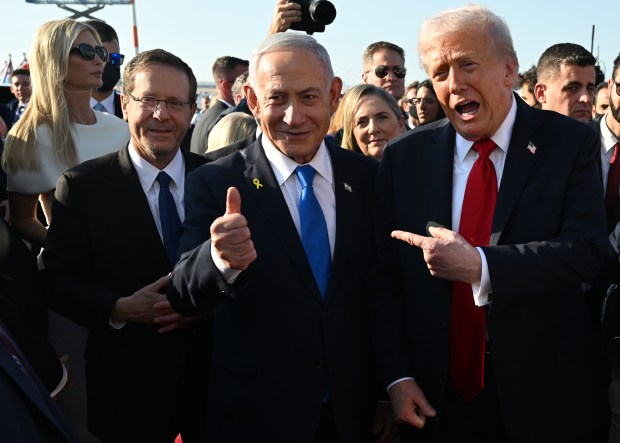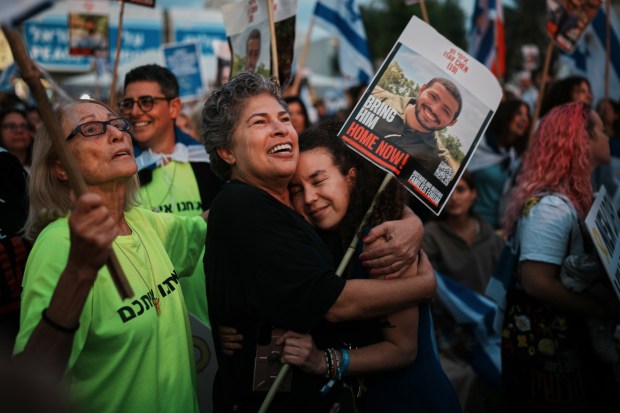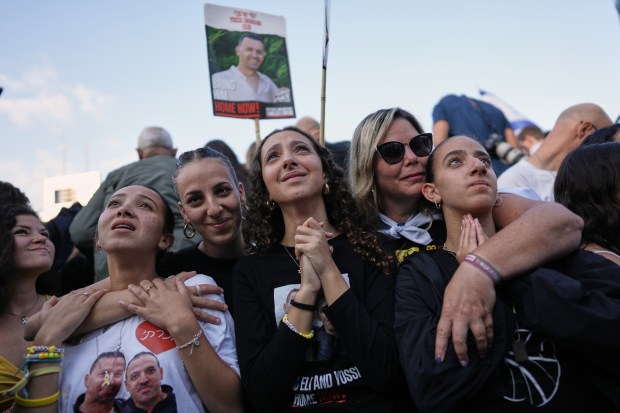Most people think that anyone who first states a price in a negotiation is dealing themselves a losing hand. But sophisticated negotiators will tell you the opposite is usually true.
Whoever gets to speak first gets to “anchor” the price, to set the context for all future negotiations, which then are forced to use that as a base. Even if it is unreasonable, it enters an adversary’s brain.
This can also be true in more important matters than buying a new car, such as peace in the Middle East.
If you read Monday’s media coverage of the return of Israeli hostages held by Hamas in Gaza to their deeply relieved families and the return of hundreds of Palestinian prisoners held by Israel, you no doubt read one caveat after another about the future.
The New York Times was typical. “Israel and Hamas have not agreed to the next steps in Gaza,” was right there in a headline, just below President Donald Trump declaring a “historic dawn.” And, just below that, “there remain many unanswered questions about whether Israel and Hamas can reach a lasting peace.”
This is, of course, true. We don’t know what will happen next. The history of such moments like the extraordinarily good one that occurred Monday teaches us that people living through them generally do not know what the future will bring.
We don’t know if peace will last between Israel and Hamas just as we don’t know if war will break out elsewhere and that’s without even getting into the semantic question of what constitutes war or peace. Journalists are doing their job when they roll out the caveats.
But Trump still was smart to say, “The war is over.” He said to the Knesset Monday, this is “not only the end of a war, this is the end of the age of terror and death.”
He had begun on the plane over from Washington, D.C.: “The war is over, you understand that,” he told reporters onboard Air Force One. And when he was asked about what will happen in the region, he said, “I think it’s going to normalize.“
You can see all of that as Trump, an infamous egotist, pumping up his own achievements and bridling at those cynics at the back of the plane. For sure.
But if the U.S. president says that the war is over, period, then he is also anchoring that notion within an otherwise muddled reality. Because the Middle East always has been muddled.
Stating something does not make it so. But it can help. (Just ask John Lennon and Yoko Ono).
So, we’ll take the cue.
The war, this war, is over.
The killing is over.
The bombing is over.
The terror is over.
The kidnapping is over.
The weeping is over.
The children being killed in the rubble in Gaza is over.
The insanity of all of it is over.
Or so we pray.
Submit a letter, of no more than 400 words, to the editor here or email letters@chicagotribune.com.
